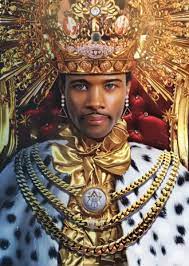Adonitology

Adonitology, derived from the Greek word “Adonai,” meaning “lord” or “master.” Is an intriguing field of study that delves into the historical and cultural aspects of deity worship. Rooted in ancient civilizations . Adonitology provides a lens through which we can explore the intricate tapestry of human beliefs, rituals, and the evolution of religious practices. This article aims to unravel the layers of adonitology, shedding light on its origins, significance, and its enduring impact on societies across time.
The Origin of Adonitology
To understand adonitology, one must trace its roots back to the earliest civilizations where the concept of deity worship took shape. In ancient Mesopotamia, the Sumerians were among the first to establish a complex pantheon of gods . Each associated with specific domains and responsibilities. The concept of adonitology can be seen in the reverence given to deities like Enlil and Marduk, considered lords or masters governing various aspects of life.
As civilizations evolved, so did the practices associated with adonitology. In ancient Egypt, the adoration of deities reached unprecedented heights . With pharaohs being considered as divine rulers. The worship of gods such as Ra and Osiris showcased the belief in a supreme lord overseeing the cosmos and human destinies.
Adonitology in Greco-Roman Culture
The Greek and Roman civilizations, known for their pantheons of gods and goddesses, contributed significantly to the development of adonitology. The Olympian gods, led by Zeus, held sway over various aspects of the mortal realm. Temples dedicated to these deities became centers of worship . Emphasizing the lordship and mastery of the divine.
One notable example is the cult of Adonis . A figure revered for his beauty and association with fertility. Adonis represented the cycle of life, death, and rebirth, embodying the eternal mysteries of existence. The adoration of Adonis was not just a religious practice . But also found expression in art, poetry, and rituals, underscoring the deep cultural impact of adonitology in ancient times.
Adonitology in Abrahamic Religions
The monotheistic traditions of Judaism, Christianity, and Islam also bear the imprint of adonitology in their theological frameworks. In Judaism, the title “Adonai” is used as a reverential term for the one God. The psalms and prayers in the Hebrew Bible reflect the acknowledgment of God as the ultimate lord and master.
Christianity, stemming from its Jewish roots . Incorporates adonitological elements in its worship. The term “Lord” is frequently used to refer to Jesus Christ, emphasizing his divinity and role as the master of salvation. The Lord’s Prayer, a central Christian prayer, further underscores the adonitological aspect of seeking divine guidance and acknowledging God’s sovereignty.
In Islam, the concept of Tawhid, the oneness of God, aligns with adonitology by emphasizing the absolute lordship of Allah. Muslims express their submission to the divine will through the declaration, “La ilaha illallah,” meaning “There is no god but Allah.” This proclamation encapsulates the adonitological principle of recognizing a singular, supreme lord.
Adonitology in Hinduism and Buddhism
In the vast tapestry of Eastern religions, adonitology takes on diverse forms, particularly in Hinduism and Buddhism. In Hinduism, the term “Ishvara” is used to denote the supreme lord or god. Deities like Vishnu, Shiva, and Devi are revered as cosmic masters governing creation, preservation, and destruction.
Buddhism, while not centered on a personal deity, incorporates adonitological elements in its veneration of enlightened beings. The Buddha, often referred to as the “Bhagavan” or “Blessed One,” embodies the mastery over suffering and the path to enlightenment. The Dharma, as the cosmic law, serves as the guiding principle underpinning the lordship of wisdom and compassion.
Adonitology in Contemporary Context
The influence of adonitology extends beyond historical and religious contexts into contemporary society. The concept of lordship and mastery, albeit in secular forms, permeates political, social, and cultural spheres. Leaders and figures of authority are often ascribed titles that echo the adonitological tradition, emphasizing their role as masters or lords in their respective domains.
Moreover, the language of adonitology continues to shape moral and ethical discourse. Concepts like justice, righteousness, and accountability find resonance in the idea of a higher authority or lordship that governs human behavior. The enduring impact of adonitology is evident in the ethical frameworks that underpin legal systems, societal norms, and individual moral codes.
Conclusion
Adonitology, as a multidimensional field of study, offers a rich tapestry of insights into the human quest for meaning, purpose, and connection to the divine. From ancient civilizations to contemporary societies, the concept of lordship and mastery has woven its way into the fabric of human consciousness, shaping religious, cultural, and ethical landscapes.
Exploring adonitology unveils the diversity of beliefs, rituals, and practices that have emerged across time and geography. Whether in the majestic temples of ancient Mesopotamia, the philosophical discourse of Eastern religions, or the monotheistic traditions of the Abrahamic faiths, the thread of adonitology weaves through the intricate tapestry of human spirituality.
Adonitology invites us to contemplate the profound questions of existence, our relationship with the divine, and the enduring quest for a higher purpose that transcends the temporal and the material.






